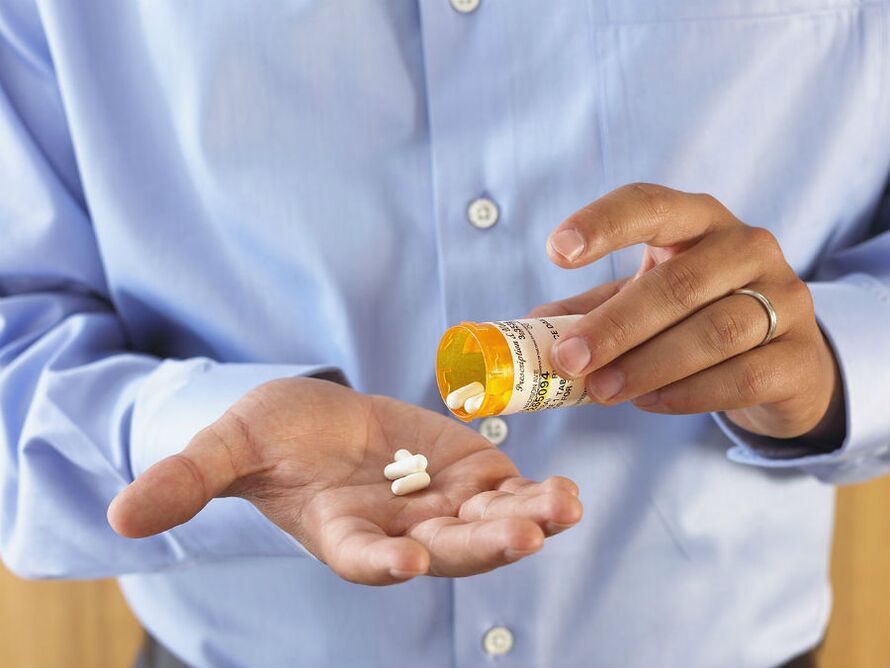
Prostatitis - inflammation of the prostate - is more common in men of reproductive age, ie 20-50 years. A few years ago, this disease was more commonly attributed to men over the age of 60. The reason for the change is, of course, the spread of factors that depress the body.
So today, this insidious disease has become a real problem in modern urology: patients are unaware of the consequences, but rather listen to their poor health. However, this dizziness can lead to such sad consequences as irreversible infertility and inflammation of many organs.
Inflammation of the prostate occurs due to a bacterial infection, the pathogens of which enter the prostate in various ways - ascending (through the urethra), descending (from the bladder), lymphogen and hematogenous (due to inflammation of other organs - sinusitis, anal fissures, hemorrhoids and even tooth decay). . However, in addition to the infection itself, a number of factors trigger the mechanism of inflammation of the prostate.
Hypothermia, weakened immunity, hormonal disorders, urinary tract disorders, sexually transmitted diseases, irregular sex life, passive lifestyle contribute to the development of the disease. There are two types of prostatitis - acute and chronic, all of which require general and individual treatment.
Treatment
Treatment of the disease is limited to the cessation of the stagnant or inflammatory process of the prostate gland. But to finally cope with this disease, you must first rule out the cause of the appearance and then treat the disease itself.
Diagnosis - smear from the urethra to calculate whether there are viruses, protozoa or bacteria in the gland. If these are identified, antibacterial therapy (antibiotic treatment), viral etiology, interferon or gamma globulin preparations will be required for bacterial infection. Depending on the extent of the lesion, the duration of this phase of treatment is determined.
Medications - you can't do without them
First, you need to make sure the process is contagious. If so, medications in this category are needed. In addition, they are almost always prescribed for chronic prostatitis, even if no obvious signs of infection are found.
The best solution would be to first take a swab from the urethra and examine the susceptibility of the bacteria to antibiotics - this will allow you to select the most effective drug.
Antibiotic therapy is performed with a group of fluoroquinolone antibiotics. This is due to the fact that these types of antibiotics penetrate the tissues of the prostate well, in contrast to the antibiotics of the penicillin, cephalosporin, and macrolide series.
Antibiotic therapy can take quite a long time - up to three months. However, keep in mind that the ill-considered use of antibiotics has not benefited anyone - be sure to consult a specialist for advice on which medication you need.
Note to the patient - many drugs in this category have a depressing effect on sperm, but this only happens during treatment! There is no need to worry about this - after a few months, the fertility of the sperm is fully restored.
It is advisable to prescribe antifungal drugs together with antibiotics, as antibiotics act only on bacteria and a predisposition to fungal (i. e. fungal) diseases appears in the background of reduced immunity.
It is also possible to prescribe alpha-blockers that suppress pain and relieve gland spasm, relaxing the smooth muscles of the bladder neck and prostate.
In parallel with antibiotic therapy, the male prescribes prostate massage - a procedure that is quite uncomfortable and painful, but is absolutely necessary to cure prostatitis. In addition, the doctor prescribes booster drugs that dissolve stagnant processes and increase the body's immunity.
The patient himself has to do a lot - in order to have a faster course of treatment and a better blood supply, the patient has to lead an active lifestyle, sit less or lie down.
Additional drugs that contain natural, natural ingredients are likely to be prescribed for the comprehensive and effective treatment of prostatitis. These drugs significantly improve the prognosis of treatment.
Again, taking these medications does not preclude the above stages of treatment, but only complements them. Under no circumstances should you take antibiotics with any herbal tincture - they have a completely different direction. Let’s take a look at the most common herbal preparations for prostatitis.
In the modern pharmaceutical market, drugs for chronic and acute forms of prostatitis are very widely represented. However, it should be borne in mind that the choice of medication is a purely individual matter, and you should consult a urologist before taking any medication on your own. In fact, sometimes self-healing can do far more harm than good.
Inattention is the enemy of health
What happens if the disease is allowed to flow? If a man is "lucky" to have an acute form of prostatitis, it is extremely important to see a doctor at the first symptoms - this will help him cope with the disease much faster and more effectively.
If the pathology reaches a chronic stage, long-term remissions are possible, during which the patient is temporarily not disturbed by groin pain when urinating, the body temperature is not much different from normal, and the man may choose to have his sexual function restored.
However, during this "deceptive euphoria, " the inflammatory process from the prostate gland penetrates deeper and deeper into every human organ. In addition, remissions are replaced by sharp exacerbations, the symptoms of which are much clearer than before.
Inattention to their own health can lead to many unpleasant complications - abscesses, loss of potency, infertility. In addition, infertility in advanced prostatitis is rarely treatable.
Attention! Do not try to heal yourself. Medical consultation and clinical examination are required.





























